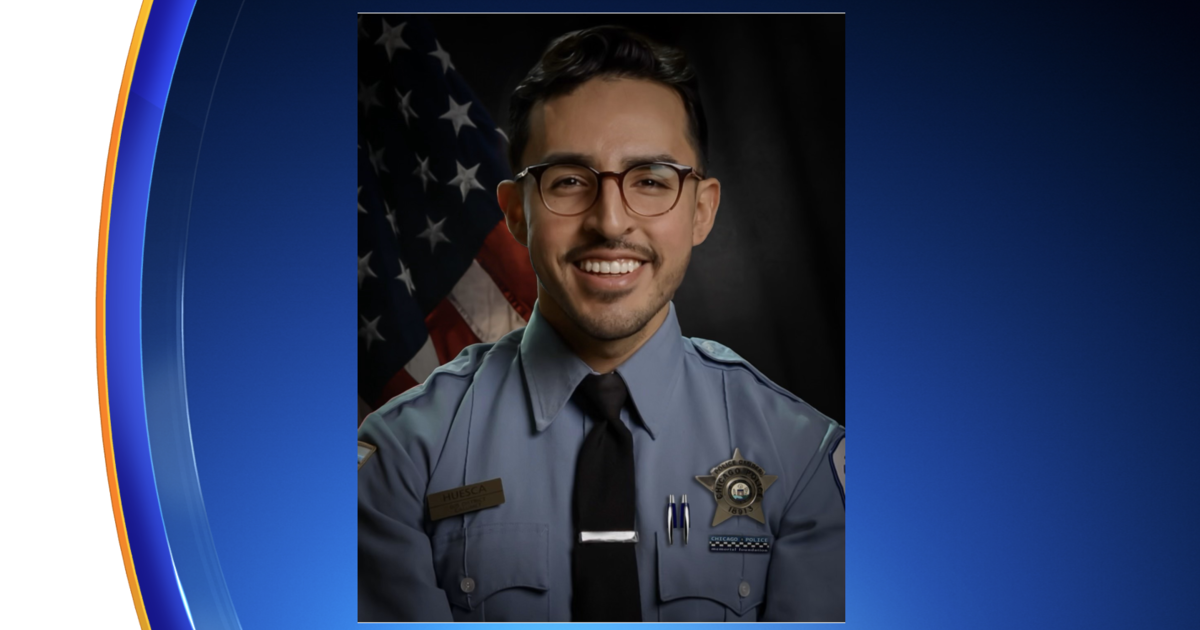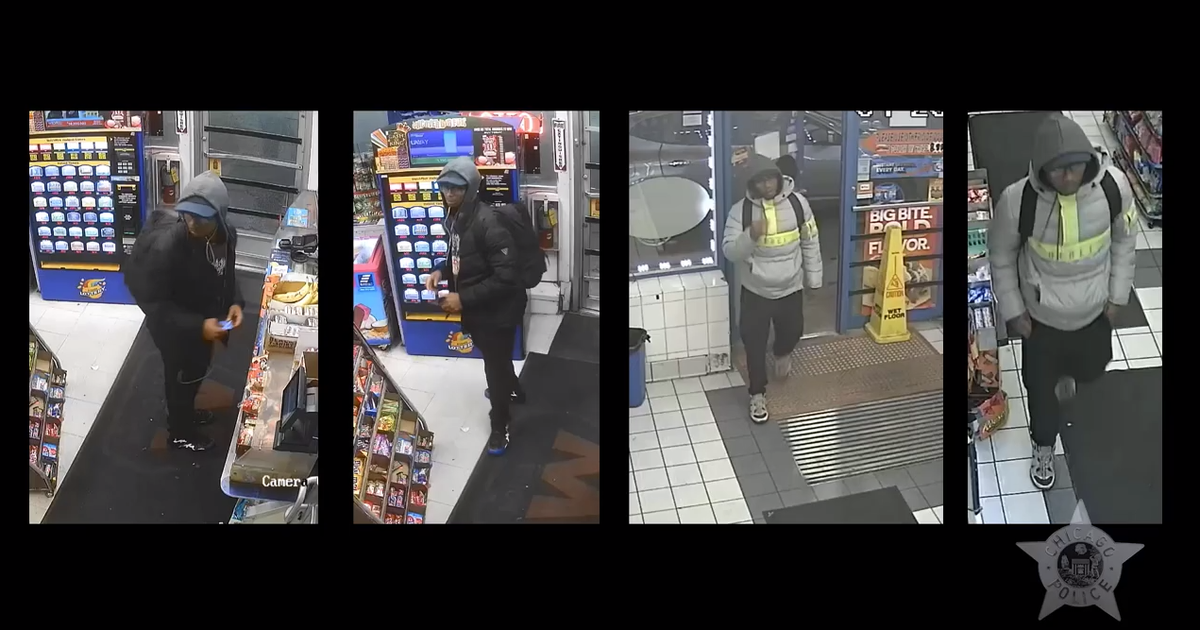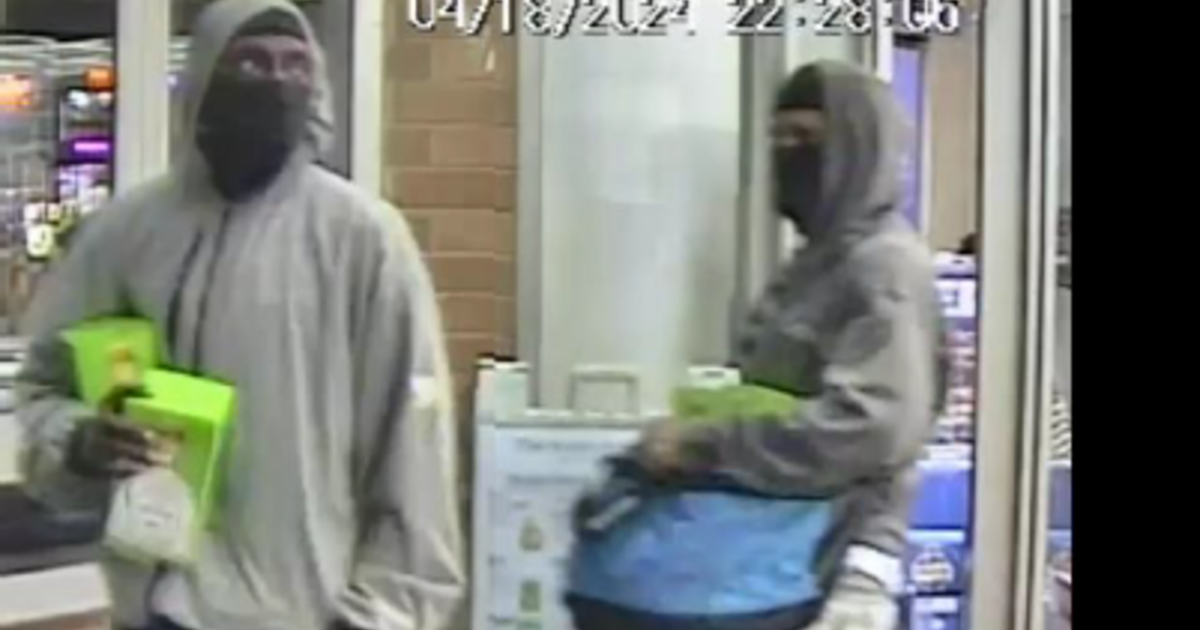Is There A Serial Killer On The Loose In Chicago? Dozens Of Similar Cases Unsolved
CHICAGO (CBS) --Some have been raped, others were beaten: Dozens of cases of women who were all strangled or asphyxiated remain unsolved.
CBS 2 Investigator Pam Zekman reports that questions are being raised about whether a serial killer may be on the loose in Chicago.
Since 2001, their bodies have been found in vacant lots, abandoned buildings, and alleys. Some were dumped in garbage cans, and some even set on fire; all of them strangled.
"It's horrible, it's horrible," said Audry Blinstrup, sister of murder victim Gwendolyn Williams. "It could be anybody's family ... not just my sister."
"She kept us away from the streets and she kept the streets away from us," said Blinstrup. "She was our protector."
It was Williams who needed protection in 2002. Her body was found in the 4800 block of North Sheridan, half dressed and covered in blood; with drugs and alcohol in her system, along with semen from recent sexual activity. There was also a stranger's skin under her nails.
"She was fighting for her life," said Sharon Pritchett, Williams' other sister. "Whatever was going with her, she was not going to go down without a fight."
For years, the two sisters have been fighting for police to catch the killer.
"She was a very valuable human being," Pritchett said. "I know they probably didn't see that in her, but we saw that in her, and we loved her very much."
The 2 Investigators asked the Murder Accountability Project to review more than 50 unsolved strangulation and asphyxiation cases dating back to 2001. The group -- known as MAP -- has a knack for finding patterns in unsolved murder cases using a computer algorithm.
"It's essentially a serial killer detector, and for many years our algorithm has been signaling red alert about a series of strangulations in Chicago," said Murder Accountability Project Director Thomas Hargrove.
Hargrove showed the 2 Investigators how he plotted the more than 50 unsolved cases since 2001.
"Overall [there] are the three killing fields: South Side, Far South Side and Chicago's West Side," said Hargrove. "There's a pattern to who's doing the dying. Disproportionately, these women have a history of sex work and a history of illegal drugs, a classic pattern in serial killers."
The cases drop off in 2014, suggesting to Hargrove that the killer might have been in jail at that time.
Then the pattern started again in March of 2017, and continued "with a vengeance" in 2018, according to Hargrove.
Over those two years, Diamond Turner, Catherine Saterfield Buchanan, Valerie Marie Jackson, Lora Dawn Harbin, and Nicole Lynell Ridge were killed. Ridge is still memorialized in the alley near 23 W. 104th Pl. near the abandoned garage where her body was found.
All the women were strangled and all were declared homicides by the medical examiner.
Reo Renee Holyfield was also found dead in September of 2018, but her case is in limbo. Chicago Streets and Sanitation workers found her in a garbage container near 525 W. 95th St.
Holyfield's autopsy report says circumstances suggest "the death could have been a homicide" by asphyxiation. But, her body was too decomposed to definitely tell, so her cause of death is "undetermined" and the police classified it as a "suspended death investigation."
For Holyfield's family, not knowing adds to the pain of what happened.
"It's like razor blades, it hurts even worse, " said Ricardo Holyfield, the victim's cousin.
Ricardo is especially pained by the fact that his cousin's body was found in a garbage container.
"That's not fair, she's not trash, she's loved by many," Holyfield said. "It makes it hurt more because you know somebody probably did this to her."
"We absolutely believe that the recent killings are part of a continuing pattern," said Thomas Hargrove. " It's highly unlikely these 50 women were murdered by 50 separate men."
Hargrove's warning to Gary. Ind., police proved accurate in 2014 after Darren Deon Vann was charged with strangling a 19-year-old prostitute in Hammond. He later confessed to murdering six other women in the Gary area. It's a pattern Hargrove pointed out to Gary police in 2010.
"We had total radio silence from those guys," said Hargrove. "They would not respond."
"We think its extremely likely that there are a common killer or killers in the Chicago as it was proven to be in Gary Indiana."
But the Chicago Police Department says, at this time, it has no actionable evidence of a pattern that would point to a serial killer. CPD officials refused to do an on-camera interview.
Recently, Gwendolyn Williams' sisters were told Chicago police thought they found their sister's killer. DNA evidence matched a suspect who was convicted in Detroit in 1980 for armed robbery and again in 2014 for check fraud.
"I was relieved that we finally knew who it was," Sharon Pritchett said.
The suspect was recently arrested in Tampa on a warrant for first-degree murder in Willliams' case. The sisters were told that, in an interview with Chicago police, the suspect denied killing Williams or being in Chicago. But, new DNA tests did confirm he was with her. The Cook County States Attorney's office reportedly decided not to extradite him.
"I hope and pray something will be done to just get him off the streets so he can't do it again," said Audry Blinstrup. "Because the chances are this is not the only time he has done this."
Hargrove hopes his research will help police find whoever may be involved in these cases.
But in the meantime, Hargrove has a warning.
"Women in Chicago should be warned that they're being targeted. That sex workers, women who habitually use illegal drugs, there's a target on them," he said.
The Chicago Police Department provided the following statement:
"Chicago Police detectives continue to follow up on open cases by interviewing witnesses, investigating new leads, and monitoring DNA profiles. CPD takes homicides very seriously and makes all efforts, utilizing all available tools at their disposal, to clear cases and bring some resolution to grieving families. The Chicago Police Department has no actionable evidence that indicates that these cases are related or a pattern exists at this time. Many of these cases involve no witnesses or reluctant witnesses making it more difficult to meet minimum burdens for prosecution."



